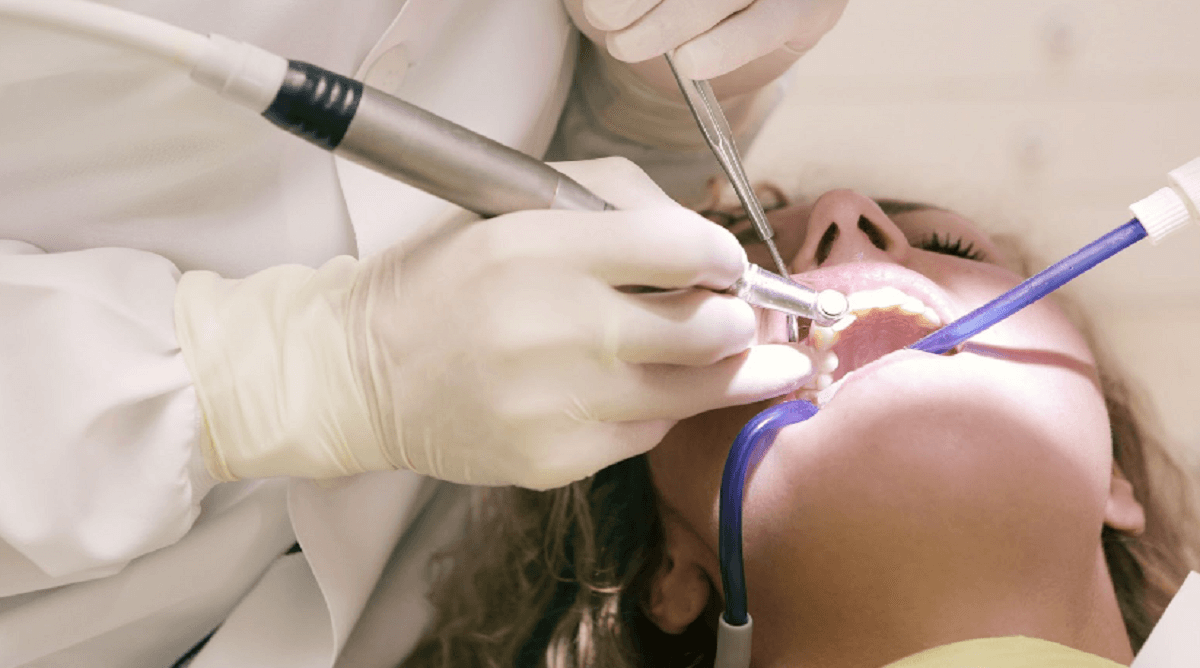Why is Dental Health Important
Dental health has a vital position in our lives, far exceeding the aesthetics of a bright smile. Our oral well-being and our overall health are not good, affecting all aspects of our daily life. The effect of dental health is extended to basic functions such as chewing, which is essential for appropriate digestion and nutritional absorption. In addition, clear words and effective communication depend on the integrity of our teeth and oral structures.
In addition to its functional role, dental health has a profound impact on our self-esteem and self-confidence. A set of healthy teeth helps bright smiles, enhance self -image and enhance our interaction with others. On the contrary, tooth problems, such as cavities, gum disease, or lack of teeth can lead to social discomfort and self-worth. This emphasizes the psychological importance of maintaining good dental hygiene and seeking necessary treatment to ensure good health and to ensure emotional health.
In addition, the connection between teeth and system health cannot be exaggerated. Emerging research has established the connection between poor oral hygiene and various systemic conditions (including diabetes, heart disease, and respiratory tract infections). Bacteria with oral infection can enter the blood, causing inflammation and may exacerbate existing health problems. You can book an appointment any time about your dental issue at Winfield Family Dental. This interaction between oral health and overall health emphasizes the necessity of regular dental examinations and positive oral care methods. In essence, priority to dental health is an overall effort, and actively echoed in our body and life.

The role of oral health
Oral health is not limited to our teeth; it covers the health of our entire mouth, including gums, tongue, and mouth roofs. The mouth is a portal to the body. Any problems that occur here may also affect other parts of the body. Each oral hygiene can cause a series of problems, including gum disease, tooth decay, bad breath, and even more severe condition, such as cardiovascular disease, diabetes, and respiratory infections.
Chewing and nutrition
One of the main functions of teeth is to decompose food into smaller and easy-to-digest fragments. Proper chewing is the first step in digestion. If the teeth are damaged, rot, or lack, the ability to chew effectively will be damaged, which will cause difficulty in diet and diet. Conversely, this may lead to insufficient nutritional intake, which has a direct impact on overall health.
Words and communication
Teeth play a vital role in voice and communication. The interaction of the tongue, lips, and teeth produces some sounds. If there is a problem with teeth or lack of teeth, it may affect voice clarity and fluency. This may lead to difficulty in communication and even affect a person’s self-esteem and social interaction.
Self -esteem, and confidence
Healthy and attractive smiles can significantly improve self-esteem and confidence. When we are satisfied with our teeth and overall oral appearance, we are more likely to be comfortable with social and professional environments. On the other hand, dental problems (such as discoloration, misplaced, or lack of teeth) can cause self-awareness and even social abstinence.
Gingival disease and whole body health
Gingival disease, also known as periodontal disease, is a bacterial infection that affects the tissue that supports dental. If it is not treated, it may cause teeth to fall off. However, the impact of gum disease extends outside the mouth. Studies have shown that gingival diseases are closely related to all kinds of systemic health conditions, including diabetes, heart disease, stroke, and even complications of pregnancy. Bacteria and inflammation related to gum disease can enter the blood and cause the development or intensification of these diseases.
Oral system link
Oral system links highlight the complex connection between oral health and overall health. Now, people have widely realized that the health of the oral cavity can affect various systems in the body. For example, people with uncontrolled diabetes are more likely to develop gum disease. Treatment of gum disease can help improve blood sugar control. Similarly, inflammation in the mouth can cause inflammation of the rest of the body, which is a common factor in the development of chronic diseases.
Prevention is the key
Preventive measures play a vital role in maintaining good dental health. Regular oral hygiene habits, such as brushing teeth, dental floss, and mouthwash, can help remove plaque and prevent the accumulation of harmful bacteria. Visiting dentists for regular examinations and cleaning is equally important because it can detect dental problems as soon as possible and it is treated promptly.

Reminder to maintain tooth health
Regular brush: Use fluoride toothpaste to brush your teeth every day. Use a toothbrush with soft bristles to change every 3-4 months.
Daily dental floss: Dental floss helps to remove food particles and plaques from the teeth and the gum lines and the toothbrush cannot be effectively extended into the toothbrush.
Eat a balanced diet: limit sugar snacks and drinks because they can cause tooth decay. Instead, choose a diet rich in fruits, vegetables, whole grains, lean protein, and dairy products.
Maintaining water: Water is not only important for overall health, but also helps to rinse food particles and bacteria that may cause plaques to accumulate.
Avoid tobacco and limit alcohol: Tobacco use and excessive drinking will increase the risk of gum disease and oral cancer. Quit smoking and adjusting alcohol intake can significantly improve oral and overall health.
Protect your teeth: If you play with contact movements, consider wearing gritted teeth to protect your teeth from harm.
Regular dental examination: Please visit your dentist for regular examination and cleaning. These appointments can help identify and solve the early stages of dental issues, thereby preventing more important issues.

What is good tooth health?
Good tooth health is not just a dazzling smile. This reflects a good and healthy mouth. It involves appropriate oral hygiene habits, regular dental examinations, and overall well-being. Let us deeply study the key aspects of good dental health and how to achieve it.
- Oral hygiene practice:
The foundation of good dental health is consistent and effective oral hygiene practice. It is essential to use fluoride toothpaste to brush your teeth every day. Make sure to use soft brain toothbrushes and fluoride toothpaste to help enhance enamel and prevent teeth from rotting. The brushing is removed. This is a sticky bacterial film that can accumulate on the teeth and gums, which can cause tooth decay and gum disease.
Dental floss is equally important every day. Dental floss reaches the area where your toothbrush cannot be, such as teeth and teeth along the gingival line to remove food particles and plaques. These prevention measures help prevent the cavity between gum disease and teeth.
- Balanced diet:
A balanced diet not only helps overall health but also supports good tooth health. Limit sugary snacks and drinks, because sugar feeds acidic bacteria, causing teeth to rot. Choose a diet rich in fruits, vegetables, whole grains, lean protein, and dairy products. High-fiber foods stimulate saliva, which helps neutralize acid and recall teeth.
- Conventional dental examination:
Regularly seeing dentists is essential for maintaining good dental health. Dental professionals can find verbal problems as soon as possible, thereby preventing them from upgrading to more important issues. Dental doctors are thoroughly clean, clear tartar, and provide valuable guidance on appropriate oral care technology. These appointments also include examination of gum disease, oral cancer, and other oral health problems.
- Lifetime factors:
The choice of certain lifestyles can affect the health of the teeth. Avoid smoking and tobacco products because they increase the risk of gum disease and oral cancer. Limit drinking, because excessive alcohol can cause dry oral dryness and oral health problems. Keep water by drinking water because it helps to wash food particles and bacteria and maintain a healthy oral environment.
- Oral health and system health:
Understand the connection between oral health and overall well-being. Poor oral hygiene can cause systemic health problems, including heart disease, diabetes, and respiratory tract infections. Bacteria of gum disease can enter the blood and cause inflammation in other parts of the body. Through priority to consider good tooth health, you can not only protect your smile but also protect your overall health.
FAQs
Why is the health of teeth?
Teeth health is important because it is not just a smiley smile. Maintaining good dental hygiene is essential for proper chewing and digestion. Teeth are critical to decompose food as small and digestible particles, which allows our body to effectively absorb nutrients.
How does tooth health affect self-confidence?
Teeth health significantly affects self-confidence. Healthy and attractive smiles promote self-esteem, thereby improving social interaction, and more comfortable in the professional environment. On the other hand, dental problems such as rotten teeth, deformation, or dental teeth may lead to self-awareness and social ring.
What is the relationship between dental health and overall health?
Tooth health is closely related to overall health. Poor oral hygiene can cause gum disease, which causes bacteria to enter the blood, and may cause diseases such as diabetes, heart disease, and respiratory tract infections. This oral system link emphasizes that the link to ignore tooth health may bring far-reaching consequences. Regular dental examinations and appropriate oral care are critical to maintaining oral health and overall well-being.
Conclusion
Tooth health is not easy to take. This is the key component of our overall well-being, which has a profound impact on our health, emotional health, and quality of life. Through priority to consider oral hygiene, practice prevention measures, and seek timely dental care, we can ensure that our smiles remain glorious, and our bodies will remain healthy in the next few years. Remember, a healthy smile reflects a healthy life.
